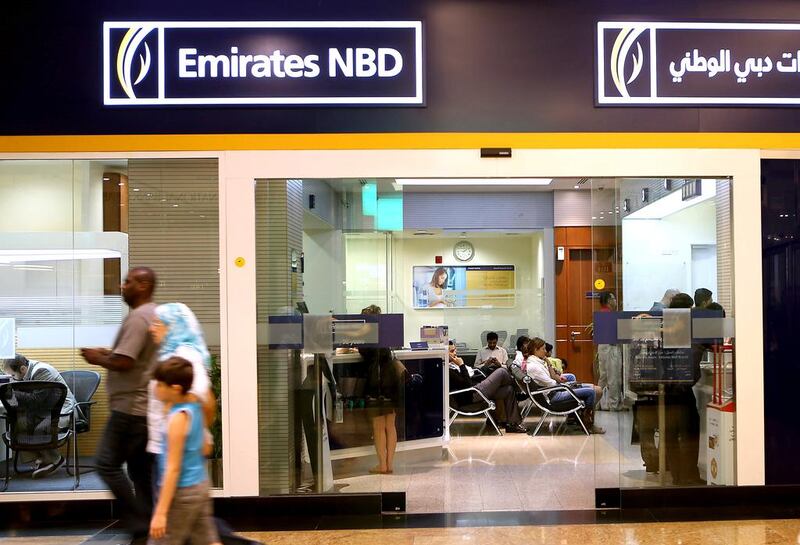The UAE and Saudi Arabia experienced a resurgence in non-oil business conditions in May, according to the latest Emirates NBD surveys, a turnaround from dips earlier this year and, for Saudi Arabia, an all-time low recorded in April.
The headline seasonally adjusted Emirates NBD UAE Purchasing Managers’ Index (PMI) – a composite indicator designed to give an accurate overview of operating conditions in the non-oil private sector economy – rose to 56.5 in May, from 55.1 in April. The figure was indicative of a “sharp improvement” in UAE business conditions, above the long-run average, Dubai's biggest bank said.
“The strong PMI reading in May was partly due to a rebound in export orders - reflecting improved external demand conditions - as well as significant price discounting domestically,” said Khatija Haque, head of Mena research at Emirates NBD.
The UAE PMI has been rising steadily since March, when it hit a 10-month low, declining to 54.8 from 55.1 in February. The May reading was the highest in four months.
GCC economic growth is expected to pick up in 2018 and 2019, after bottoming out last year, as the price of oil rebounds and non-oil business activity recovers, according to the International Monetary Fund’s regional outlook published in April. Average GDP growth for the region is expected to rise to 1.9 per cent in 2018 and 2.6 per cent in 2019 after contracting 0.2 per cent in 2017, the fund said.
________________
Read More:
[ UAE, Saudi PMI fortunes diverge in April ]
[ UAE's non-oil growth eases to 10-month low in March, Emirates NBD says ]
[ IMF expects GCC economic growth to pick up ]
________________
In the UAE, the improved PMI reading was driven by new export business reaching a 30-month high alongside reports of stronger demand from neighbouring GCC countries, Emirates NBD said. Firms surveyed by the bank also reported the highest level of confidence in the market this year since the index began in 2012 – the result of more robust market conditions, new project wins and strong growth impetus linked to Expo 2020 Dubai, according to the bank.
Reflecting this renewed confidence, firms hired additional staff at the fastest pace in four months, however, the rate of growth was only slight overall, remaining below the long-run average due to ongoing cost optimisation.
Firms also reported a reduced level of input cost inflation in May, although profit margins remained under pressure, the bank said.
Meanwhile, Saudi Arabia saw its strongest expansion in three months, rising to 53.2 in May from a record low of 51.4 in April, Emirates NBD said on Tuesday.
Ms Khatija said the Saudi index is “still low by historical standards” and reflects a slower rate of growth in the non-oil private sector than last year.
“The survey data suggests that government spending and higher oil prices year-to-date are not boosting economic activity as much as they have in the past, although firms remained highly optimistic about their future prospects,” she said.
Output growth at non-oil private sector companies accelerated in May, according to the survey, and the pace of expansion overall was robust, with many firms reporting an uptick in business activity and new work.
“Following the first recorded contraction in stocks of purchases in April, May data signalled a return to growth…albeit small,” Emirates NBD said.
Input price inflation eased during the month, but output charges rose for the first time since January, ending a three-month phase of price discounting. Meanwhile, inflows of new orders from abroad deteriorated for the fourth month in a row, while job creation fell to its lowest level in six months and below the historical trend.
That said, companies do not appear to be shedding staff, Emirates NBD said. The majority of respondents reported no change in payroll numbers in May, and overall sentiment expressed by non-oil private sector firms was positive with regard to future growth.






